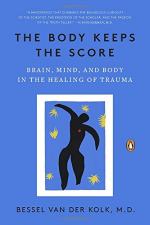
|
Prologue: Facing Trauma and Part One: The Rediscovery of Trauma
1. In the dedication to the book, what object does Van der Kolk use to metaphorically characterize his patients?
(a) Textbooks.
(b) Beacons.
(c) Kingdoms.
(d) Keys.
2. Van der Kolk states that it has always been obvious to him that "the key to healing was understanding how" what "works" (12)?
(a) The human limbic system.
(b) The human digestive system.
(c) The human organism.
(d) The human brain.
3. How old was Van der Kolk when he attended a summer camp and became interested in medicine?
(a) 9.
(b) 16.
(c) 11.
(d) 14.
4. From which person at camp did Van der Kolk learn about the functions of human kidneys?
(a) His cousin Michael.
(b) His uncle Michael.
(c) His camp counselor Michael.
(d) His best friend Michael.
5. How many fundamental avenues does Van der Kolk claim can "palliate or even reverse the damage" (13) caused by trauma?
(a) 4.
(b) 2.
(c) 5.
(d) 3.
6. Van der Kolk states that he wrote the book to serve "as both a guide" (14) and what other object?
(a) A boost.
(b) A
(c) An invitation.
(d) A hand.
(read all 180 Multiple Choice Questions and Answers)
|
This section contains 4,290 words (approx. 15 pages at 300 words per page) |

|




